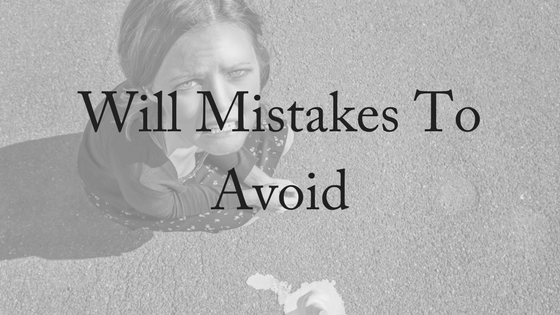If celebrities can teach you anything, it’s how to avoid these grave will mistakes.
You’d be forgiven for thinking that the rich and famous would have thoughtfully constructed wills aided by the best advice that money can buy, but the truth is that like the rest of us, estate planning is something they don’t always do well. Compiled below are the 5 will mistakes rich people make, and how we can avoid them. Many of us believe that because celebrities are rich and powerful, they have top notch estate planning. However, like us, they believe they can hold off fixing their will for just a few more years or days. However, death can be unexpected. Sometimes, celebrities just have not received the best information from their solicitor. It’s one reason we recommend that you always seek the advice of a specialist.
5 Will Mistakes Celebrities Made
1/ Patrick Swayze
His will left everything to his wife after his death in 2009, but his mother and siblings remain convinced that the will was changed while he was hospitalised prior to his death. However, because they did not file a formal lawsuit to challenge the will within 5 years of his death, they no longer have legal recourse.
Lesson Learnt: strict time limits apply if you want to contest a will. In Australia, there are different timelines. Usually, the time limit is six months from the person’s death. If you believe you have reason to contest a will, make sure you seek legal advice immediately. Once you run out of time, you may not get the opportunity again.
2/ Tom Clancy
The writer died with an estate worth $82 million, and while he had a will and trusts in place to deal with his assets, the documents were unclear about how taxes and debts of the estate ought to be paid. The family is now locked in a bitter battle about who should foot the $8 million tax bill.
Lesson Learnt: your will should be drafted by a specialist in estate planning, who can avoid any ambiguity and potential estate litigation. In Clancy’s position, he possibly thought he had dealt with everything. Unfortunately, that was not the case. This is just one reason to stay away from DIY wills – it is such a complex area of the law that you will make mistakes. A specialist in wills and estates will help you to avoid making these will mistakes, as well as minimising tax the estate has to pay, providing flexibility to beneficiaries and protecting your assets.
3/ Paul Walker
The actor died at the young age of 40 and had executed a will in 2001, the year his movie The Fast and the Furious made him famous. But he had failed to update his will since then. That means that there had been many years between the date the will was first made and the time he died. During those years, he’d had a daughter and several relationships, and his wealth and assets increased dramatically.
Lesson Learnt: Wills should be updated every five years or so, and every time there is a significant life event such as a marriage, divorce or birth of a child. If the will has not been changed, assets might go to a person with whom you’ve broken up, or it may leave out children altogether. Leaving huge spaces between your wills allows for your circumstances to be changed dramatically.
4/ Phillip Seymour Hoffman
The actor didn’t want his kids to be ‘trust fund babies’ and refused to set up a trust despite the advice of lawyers. Instead, he left his money to his estranged wife and the mother of his children. However, in doing so he left an enormous tax bill.
Lesson Learnt: proper estate planning can minimise the tax payable, and therefore pass on more wealth to beneficiaries. Always ensure that you listen to the advice of your lawyers, as they know more about the law than you do. Lawyers can help to structure your estate to minimise the risk of future litigation.
5/ Howard Hughes
The reclusive aviator and engineer died in 1976 with an estate worth $2 billion – but he had failed to execute a will at all. The courts were therefore required to divide his estate according to the rules of intestacy. Eventually, 22 cousins received a slice of the estate after years of bitter fighting.
Lesson Learnt: make sure you have a will! The rules of intestacy (dying without a will) means that a court will divide your assets in a way you might not have wanted.
Wills are almost always more complex than a single sheet of paper. The issues listed above could have been avoided with advice from a specialist in estate planning. If you need help with your will, please contact us today. Contacting a lawyer will allow for an opportunity to receive adequate advice, and hopefully you too can avoid these common will mistakes.

